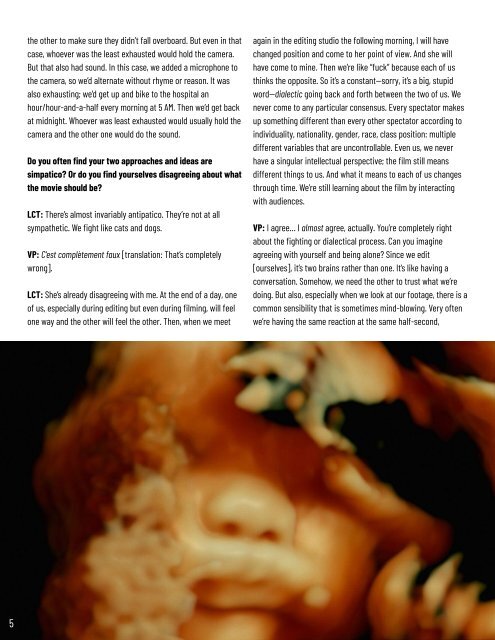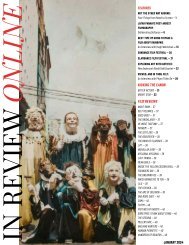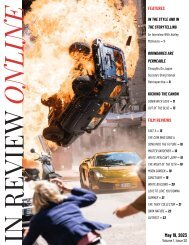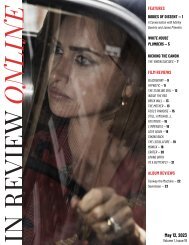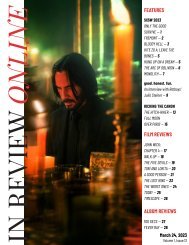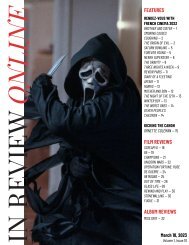InRO Weekly — Volume 1, Issue 16
Create successful ePaper yourself
Turn your PDF publications into a flip-book with our unique Google optimized e-Paper software.
the other to make sure they didn’t fall overboard. But even in that<br />
case, whoever was the least exhausted would hold the camera.<br />
But that also had sound. In this case, we added a microphone to<br />
the camera, so we’d alternate without rhyme or reason. It was<br />
also exhausting; we’d get up and bike to the hospital an<br />
hour/hour-and-a-half every morning at 5 AM. Then we’d get back<br />
at midnight. Whoever was least exhausted would usually hold the<br />
camera and the other one would do the sound.<br />
Do you often find your two approaches and ideas are<br />
simpatico? Or do you find yourselves disagreeing about what<br />
the movie should be?<br />
LCT: There’s almost invariably antipatico. They’re not at all<br />
sympathetic. We fight like cats and dogs.<br />
VP: C'est complètement faux [translation: That’s completely<br />
wrong].<br />
LCT: She’s already disagreeing with me. At the end of a day, one<br />
of us, especially during editing but even during filming, will feel<br />
one way and the other will feel the other. Then, when we meet<br />
again in the editing studio the following morning, I will have<br />
changed position and come to her point of view. And she will<br />
have come to mine. Then we’re like “fuck” because each of us<br />
thinks the opposite. So it’s a constant<strong>—</strong>sorry, it’s a big, stupid<br />
word<strong>—</strong>dialectic going back and forth between the two of us. We<br />
never come to any particular consensus. Every spectator makes<br />
up something different than every other spectator according to<br />
individuality, nationality, gender, race, class position: multiple<br />
different variables that are uncontrollable. Even us, we never<br />
have a singular intellectual perspective; the film still means<br />
different things to us. And what it means to each of us changes<br />
through time. We’re still learning about the film by interacting<br />
with audiences.<br />
VP: I agree… I almost agree, actually. You’re completely right<br />
about the fighting or dialectical process. Can you imagine<br />
agreeing with yourself and being alone? Since we edit<br />
[ourselves], it’s two brains rather than one. It’s like having a<br />
conversation. Somehow, we need the other to trust what we’re<br />
doing. But also, especially when we look at our footage, there is a<br />
common sensibility that is sometimes mind-blowing. Very often<br />
we’re having the same reaction at the same half-second,<br />
5


